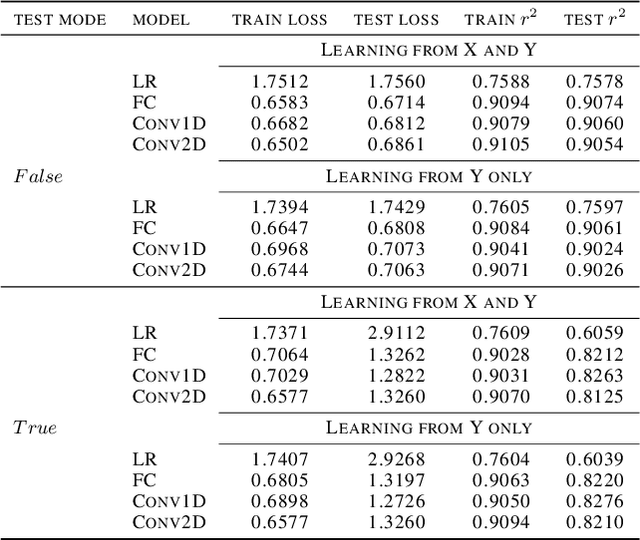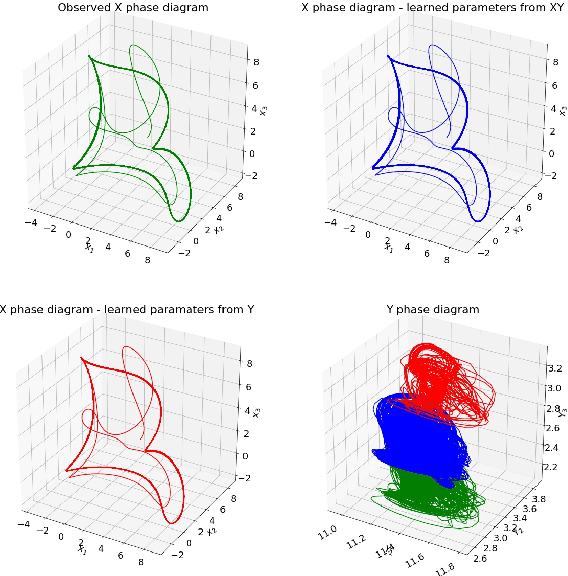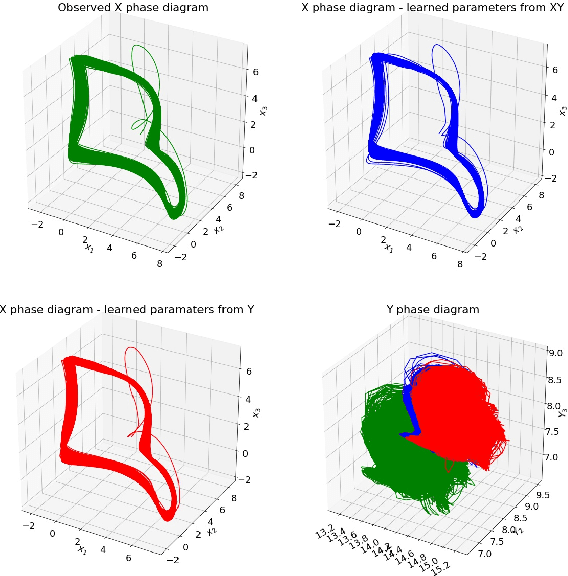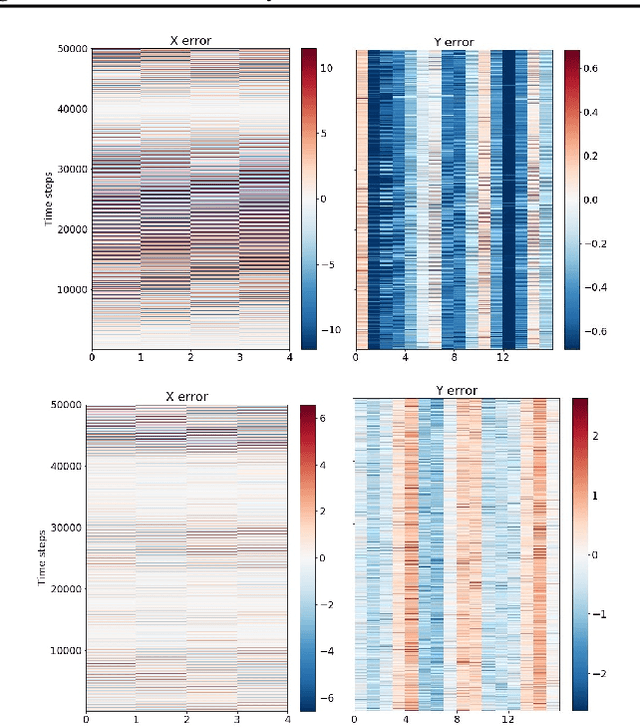Recovering the parameters underlying the Lorenz-96 chaotic dynamics
Paper and Code
Jun 16, 2019



Climate projections suffer from uncertain equilibrium climate sensitivity. The reason behind this uncertainty is the resolution of global climate models, which is too coarse to resolve key processes such as clouds and convection. These processes are approximated using heuristics in a process called parameterization. The selection of these parameters can be subjective, leading to significant uncertainties in the way clouds are represented in global climate models. Here, we explore three deep network algorithms to infer these parameters in an objective and data-driven way. We compare the performance of a fully-connected network, a one-dimensional and, a two-dimensional convolutional networks to recover the underlying parameters of the Lorenz-96 model, a non-linear dynamical system that has similar behavior to the climate system.
 Add to Chrome
Add to Chrome Add to Firefox
Add to Firefox Add to Edge
Add to Edge